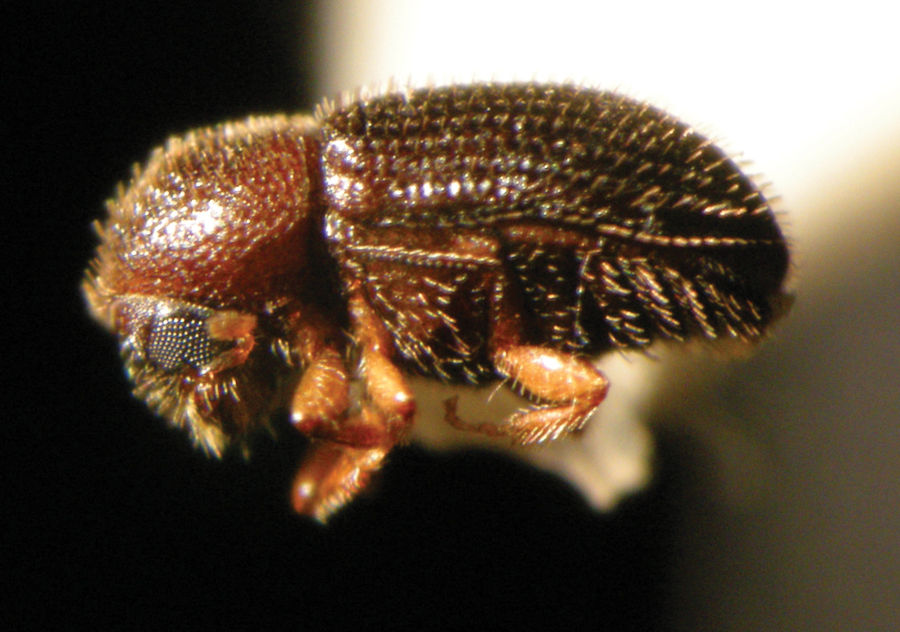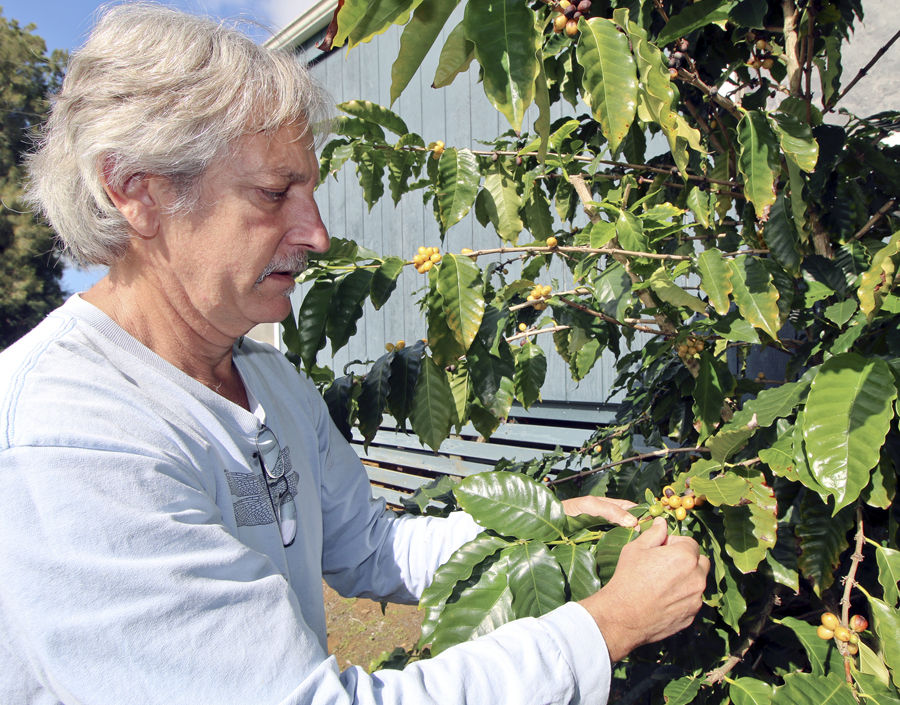LIHUE — Fortunately, the coffee berry borer has not reared its ugly, little head on Kauai. However, it’s closer now than ever before. And the state’s largest coffee grower, Kauai Coffee Company, is preparing for the worst. “This is extremely serious,”
LIHUE — Fortunately, the coffee berry borer has not reared its ugly, little head on Kauai.
However, it’s closer now than ever before. And the state’s largest coffee grower, Kauai Coffee Company, is preparing for the worst.
“This is extremely serious,” Greg Williams, the company’s orchard manager, wrote in an email. “It is a top priority for Kauai Coffee to get ahead of this problem before it arrives.”
Last month, the state Department of Agriculture confirmed the invasive beetle had reached the island of Oahu, specifically farms owned by Dole Foods in Waialua. Previously, it had only been found on the Big Island.
Among the most devastating coffee pests, the beetle was first detected in Hawaii in 2010 in Kona, and later in Kau in 2011. The small beetle bores into the coffee cherry to lay its eggs, and the larvae feed on the bean, reducing the yield and quality, according to DOA.
the beetles can cause yield losses as high as 35 percent, with 100 percent of berries infested at the time of harvest, according to the University of Hawaii College of Tropical Agriculture and Human Resources.
“We knew from the minute this thing showed up in Kona that Kauai was under threat,” said Russell Messing, an entomologist at the Kauai Agricultural Research Center.
Since the discovery of the beetle in Kona, Kauai Coffee has been working closely with Messing, DOA and others to monitor for the pest — searching through fields, inspecting coffee cherries and setting dozens of traps in areas where the pests are most likely to arrive.
“We are fortunate that there is no sign of the beetle at this time as it is a very devastating pest,” Williams wrote.
In light of the recent spread to Oahu, Kauai Coffee has ramped up its efforts.
“We do more field monitoring and scouting. Dr. Messing’s team has installed additional traps on our factory area,” Williams wrote. “We have been working on a plan to keep our orchard floor cleaner thereby reducing the habitat where the beetle can over-winter waiting for the next crop of cherries to develop on the tree.”
Messing said the project with Kauai Coffee includes weekly inspections, monitoring traps and training staff.
“Basically, we’re trying to provide them with the means to detect the beetle early on if it shows up here,” he said.
Kauai Coffee is both Hawaii’s and the United State’s largest coffee grower, with over 4 million coffee trees on 3,100 acres.
Native to Central Africa, the beetle is found in many coffee-growing regions of the world, including Central and South America. DOA says it is unknown how the beetle made its way to Hawaii Island, or how it spread to Oahu.
“We are very concerned with this recent find of coffee berry borer on Oahu,” Scott Enright, chairperson of the Hawaii Board of Agriculture, said in a release last month. “We are committed to determining the extent of the infestation and working with the industry and partners in containing and controlling the infestation and determining the source of the infestation.”
Asked the likelihood that the beetle will find its way to Kauai, Messing said, “I would not say inevitable, but I would say it’s likely.”
“We’re one of the last places in the world that doesn’t have it,” he added.
Les Drent, owner of Blair Estate Organic Coffee Farm and the Kauai Cigar Company in Kapahi, said his three acres of coffee trees are pretty isolated. However, if the beetle does show up, he says there’s not much that can be done to stop it.
“Really, at this point, people are just learning to live with it, suffer the losses,” he said.
The nature of the beast, Drent said, is that a loss in yield translates to an increase in price for consumers. Fortunately for him and others who sell roasted Kona coffee, people are still willing to pay top dollar.
“Surprising to me is sales just kept going, people kept buying it,” he said.
For a 1-pound bag of Blair Estate Organic Kauai Coffee, Drent charges $45.
“Honestly, if we got hit with the beetle, our coffee would jump to around $65 per pound,” he said.
Or, Drent would simply convert the remaining acres of coffee to tobacco, he said.
John McClure, owner of Moloaa Bay Coffee, said his situation is similar in that his 15 acres of coffee trees are isolated. However, he’s convinced it’s only a matter of time before the beetle makes its way to the Garden Isle.
“Kauai Coffee knows it and we know it,” he said, adding that once it’s here farms will have to chose between living with the pest or shutting down.
What would an infestation mean for his business?
“Maybe in the future we’ll just be a chocolate farm instead of a coffee farm,” he said.
Kauai Coffee, on the other hand, is working with UH, DOA and other coffee growers on a rapid response plan.
“The plan needs to be a much different strategy than the Kona growers use due to the large size of our farm,” Williams wrote. “The IPM (Integrated Pest Management) will be a combination of things: scouting, delimiting, mechanical sweeping/blowing, mulching and possibly spraying of the Beauveria bassiana fungus which is currently being used in Kona.”
The naturally occurring fungus, Williams said, is found around the world and acts as a parasite on some insects including the beetle. Strains of it already occur naturally in Hawaii.
Williams also stressed the importance of educating residents and visitors around the state to prevent accidental movement of the beetle from one island to another via coffee cherries, clothing, coffee burlap bags and more.
Hawaii has strict importation rules that require fumigation of imported green coffee beans to rid the beans of pathogens and insect pests. Coffee plants and plant parts are also restricted from being imported to Hawaii under Plant Quarantine rules. In addition, DOA issued a quarantine order that requires a permit to transport unroasted coffee beans, coffee plants and plant parts, used coffee bags and coffee harvesting equipment from Hawaii Island to other islands that are not infested with the coffee berry borer.
Chris D’Angelo, environment writer, can be reached at 245-0441 or cdangelo@thegardenisland.com.



